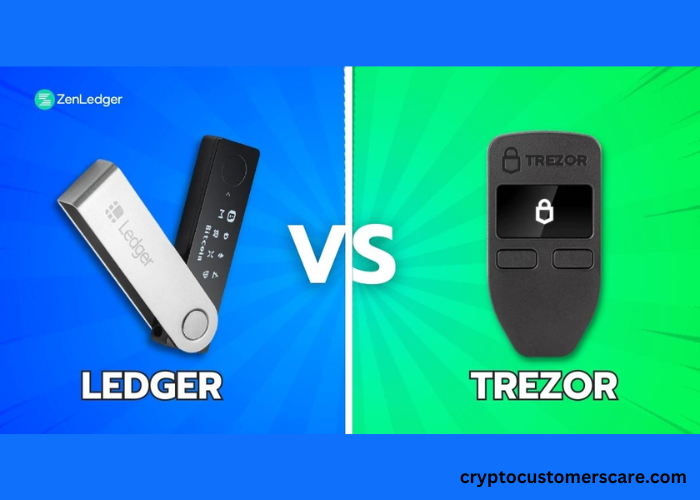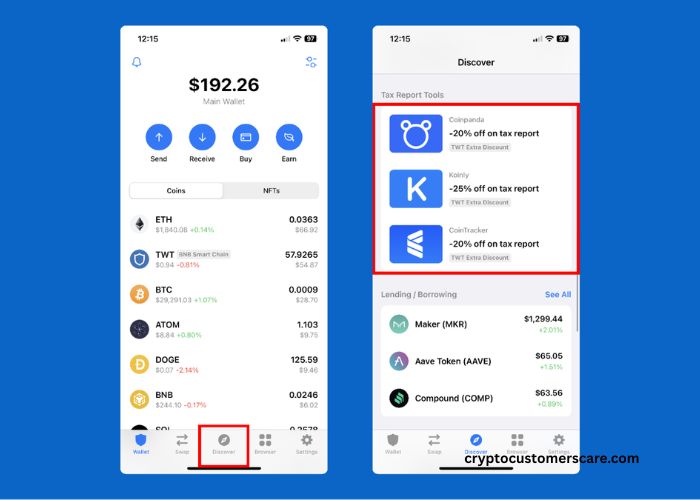In the world of cryptocurrency, security is paramount. With the rising popularity and value of digital assets, it’s crucial to have a safe and secure way to store your coins. This is where hardware wallets come into play. A hardware wallet is a physical device that securely stores your private keys and allows you to make transactions safely. In this article, we will be comparing two of the most popular hardware wallets on the market: Trezor Wallet and Ledger.
Trezor Wallet: Features and benefits
Trezor Wallet, developed by SatoshiLabs, is one of the oldest and most trusted hardware wallets in the industry. It offers a host of features that make it a favorite among cryptocurrency enthusiasts. One of the key benefits of Trezor Wallet is its open-source nature. This means that the code is transparent and can be audited by anyone, ensuring that there are no hidden vulnerabilities or backdoors.
Another notable feature of Trezor Wallet is its ease of use. The device has a simple and intuitive interface, making it accessible for both beginners and advanced users. Additionally, Trezor Wallet supports a wide range of cryptocurrencies, including Bitcoin, Ethereum, Litecoin, and many more. This allows users to conveniently manage multiple digital assets in one place.
Ledger: Features and benefits
Ledger is another prominent player in the hardware wallet market. Ledger offers a range of hardware wallets, including the popular Ledger Nano S and Ledger Nano X. One of the standout features of Ledger wallets is their robust security. The devices utilize a secure element chip, which provides a high level of protection against physical and software attacks. Additionally, Ledger wallets offer a unique feature called “Secure Element Certification,” which ensures that the device has undergone rigorous testing and meets industry standards.
Ledger wallets also excel in terms of compatibility. The devices are compatible with both desktop and mobile devices, allowing users to easily manage their cryptocurrencies on the go. Another notable feature of Ledger wallets is their extensive app support. Ledger Live, the companion app for Ledger wallets, supports over 1500 cryptocurrencies, making it one of the most versatile options on the market.
Security Comparison: Trezor Wallet vs. Ledger
When it comes to security, both Trezor Wallet and Ledger have a strong track record. Trezor Wallet, as an open-source device, has been thoroughly reviewed by the community and has stood the test of time. Its transparent design and regular security updates ensure that users’ funds are protected from potential threats. Additionally, Trezor Wallet utilizes a feature called “recovery seed,” which allows users to easily recover their funds in case the device is lost or damaged.
Ledger, on the other hand, takes security to the next level with its secure element chip. This chip provides a dedicated secure environment for key management, ensuring that your private keys never leave the device. Furthermore, Ledger wallets incorporate a feature called “anti-tampering seal,” which provides physical protection against unauthorized access. In the unfortunate event that your Ledger device is lost or stolen, you can rest easy knowing that your cryptocurrencies are safe.
User Experience and Interface Comparison
In terms of user experience and interface, both Trezor Wallet and Ledger offer intuitive and user-friendly designs. Trezor Wallet’s interface is clean and straightforward, making it easy for users to navigate through the various features and settings. The device also features a small display that allows users to verify and confirm transactions directly on the device, adding an extra layer of security.
Ledger wallets, on the other hand, have a sleek and modern interface. The companion app, Ledger Live, provides a seamless and streamlined experience for managing your cryptocurrencies. The app’s intuitive design and user-friendly interface make it a pleasure to use. Additionally, Ledger devices feature buttons on the device itself, allowing users to navigate through menus and confirm transactions.
Supported Cryptocurrencies and Integrations
When it comes to supported cryptocurrencies, both Trezor Wallet and Ledger offer a wide range of options. Trezor Wallet supports over 1000 cryptocurrencies, including popular ones like Bitcoin, Ethereum, and Ripple, as well as lesser-known altcoins. This vast selection ensures that users have the flexibility to manage their diverse portfolios.
Ledger wallets, on the other hand, support over 1500 cryptocurrencies, making it one of the most comprehensive options on the market. The extensive app support provided by Ledger Live allows users to easily install and manage different cryptocurrencies on their devices. Whether you’re a Bitcoin maximalist or a fan of obscure altcoins, Ledger has you covered.
Pricing and Availability
Pricing is an important factor to consider when choosing a hardware wallet. Trezor Wallet, with its range of models, offers options for different budgets. The entry-level model, Trezor One, is priced affordably, making it a great choice for beginners. The more advanced Trezor Model T comes with additional features and a higher price tag.
Ledger offers two popular models: Ledger Nano S and Ledger Nano X. The Nano S is the more affordable option, while the Nano X comes with additional features and a higher price. Both models provide excellent value for money, considering the security and convenience they offer.
Customer Reviews and Feedback
To get a better understanding of the user experience, it’s important to consider customer reviews and feedback. Both Trezor Wallet and Ledger have received positive reviews from users. Trezor Wallet is praised for its reliability, ease of use, and robust security features.
Similarly, Ledger wallets are commended for their security, compatibility, and extensive app support. It’s worth noting that some users have reported minor issues with both devices, such as firmware updates or compatibility with certain cryptocurrencies. However, these issues are often resolved through regular updates and customer support.
Choosing the Right Hardware Wallet for You
When choosing between Trezor Wallet and Ledger, it ultimately comes down to personal preference and specific requirements. Both wallets offer excellent security, user-friendly interfaces, and extensive cryptocurrency support. Consider factors such as pricing, device compatibility, and the specific cryptocurrencies you plan to store before making a decision.
If you’re a beginner looking for an affordable option, Trezor Wallet’s entry-level model, Trezor One, could be the right choice for you. On the other hand, if you value versatility and app support, Ledger’s extensive compatibility and the sleek Ledger Live app might be more appealing.
Conclusion
In conclusion, both Trezor Wallet and Ledger are top-tier hardware wallets that offer excellent security and user experience. Trezor Wallet’s open-source nature, ease of use, and wide cryptocurrency support make it a popular choice among cryptocurrency enthusiasts. Ledger, on the other hand, stands out with its secure element chip, extensive app support, and sleek design.
Ultimately, the choice between Trezor Wallet and Ledger depends on your personal needs and preferences. Consider factors such as security, user experience, supported cryptocurrencies, and pricing before making a decision. Whichever option you choose, both Trezor Wallet and Ledger provide a solid foundation for securely managing your digital assets. So go ahead, pick the one that suits you best and take control of your cryptocurrencies with confidence.







